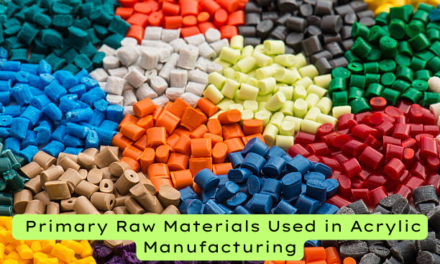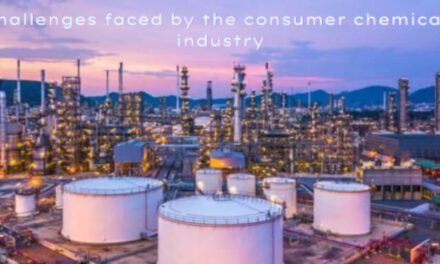Customization plays a pivotal role in specialty chemicals manufacturing because these chemicals are often produced to meet the specific and highly specialized needs of various industries. Unlike basic chemicals, which are typically mass-produced and standardized, specialty chemicals are designed to have unique properties that cater to particular applications. The ability to customize these chemicals allows manufacturers to deliver products that provide a competitive edge, meet regulatory requirements, and address specific customer demands.
Key Aspects of Customization in Specialty Chemicals Manufacturing:
- Tailored Performance Properties:
- Functionality: Specialty chemicals are often designed to meet specific functional requirements. For example, a chemical may need to be highly resistant to heat, moisture, or corrosion, or have unique optical, electrical, or chemical properties. Customization allows manufacturers to engineer chemicals to perform optimally in the targeted application, whether it’s in pharmaceuticals, electronics, or automotive industries.
- Formulation Adjustments: The chemical composition, structure, or concentration of components can be adjusted to achieve desired performance characteristics, such as improved durability, reactivity, or compatibility with other materials.
- Customer-Specific Requirements:
- Industry-Specific Applications: Different industries have unique needs for specialty chemicals. Customization ensures that the product fits precisely into the requirements of sectors such as healthcare, electronics, construction, agriculture, and food processing. For instance, chemicals used in pharmaceuticals must meet strict safety and efficacy standards, while those in food processing must be non-toxic and food-grade.
- Tailored Quantities: Customization can also involve adjusting the production scale. While some customers may require small batches of highly specialized chemicals, others may need larger quantities for mass production. Specialty chemical manufacturers often provide flexibility in production volumes to suit customer needs.
- Regulatory Compliance:
- Different regions and industries have varying regulations concerning the safety, environmental impact, and quality of chemicals. Customization allows manufacturers to modify products to meet specific regulatory standards. For example, chemicals used in the food and beverage industry must comply with food safety regulations, while those in pharmaceuticals must adhere to stringent health regulations.
- Green Chemistry: There is also growing demand for environmentally friendly and sustainable products. Customizing chemicals to meet sustainability goals (e.g., biodegradable, non-toxic, or recyclable) allows companies to align with green chemistry principles and reduce environmental footprints.
- Innovation and R&D:
- Customization is often driven by research and development (R&D) efforts, which help chemical manufacturers create innovative solutions. Through R&D, companies can develop new chemical formulations or processes that are highly specific to emerging technologies or niche markets.
- Prototype Testing: Custom chemicals can be developed as prototypes or pilot projects for new applications. For example, a specialty chemical might be designed and tested for a new material or manufacturing process before full-scale production.
- Cost-Effectiveness:
- Customization allows manufacturers to produce chemicals with exactly the right specifications for an application, helping to optimize the performance and cost-effectiveness of a product. For example, adjusting the concentration of a chemical might reduce the amount of material needed for a certain process, improving the overall cost-efficiency of production.
- Supply Chain Flexibility:
- Customization can also extend to the packaging and delivery of specialty chemicals. Manufacturers may provide bespoke packaging solutions or work with customers to develop delivery schedules that align with their production timelines, minimizing waste and ensuring consistency in supply.
- Improved Functionality in Advanced Technologies:
- In industries like electronics, healthcare, and automotive, customized specialty chemicals are essential for the development of new technologies. For example, customized conductive inks are crucial for the production of printed electronics, while tailored polymers are essential for high-performance medical devices. The ability to adjust the properties of these chemicals directly influences the innovation and performance of the final products.
Examples of Customization in Specialty Chemicals:
- Pharmaceuticals: Customized active pharmaceutical ingredients (APIs) are tailored for specific drug formulations. This could involve altering the solubility or release rate of the drug to ensure better absorption or targeting within the body. Additionally, tailored excipients (inactive ingredients) are often used to optimize drug stability and effectiveness.
- Agricultural Chemicals: Custom fertilizers and pesticides are designed for specific crops, soil types, or environmental conditions. Adjusting the chemical composition allows for better crop yields, disease resistance, and minimal environmental impact.
- Electronics: Specialty chemicals in the electronics industry, such as photoresists for semiconductor manufacturing, are highly customized to meet the precision and performance requirements of modern electronics. The customization of materials such as conductive polymers or advanced coatings can significantly enhance the performance and reliability of electronic devices.
- Automotive Industry: Custom coatings, adhesives, and sealants are created to meet the specific demands of automotive applications, such as high heat resistance, durability, and chemical stability in the harsh environments that vehicles experience.
Benefits of Customization in Specialty Chemicals Manufacturing:
- Competitive Advantage: Custom specialty chemicals give manufacturers a competitive edge by offering differentiated products that cater to specific customer needs and applications.
- Increased Customer Loyalty: Providing tailored solutions enhances customer satisfaction and loyalty by offering exactly what is needed for a particular application, which is often not achievable with generic chemicals.
- Better Performance and Efficiency: Customization leads to improved product performance by ensuring that the chemical meets the unique conditions and requirements of a specific application, leading to more efficient processes and better end products.
- Sustainability: Custom chemical solutions often address specific environmental concerns or help reduce waste, improving the sustainability of products and processes.
Conclusion:
Customization is integral to specialty chemicals manufacturing because it allows companies to create products that meet the specific, complex needs of various industries. By tailoring the chemical composition, performance characteristics, and production processes, manufacturers can help clients achieve better results, improve efficiency, meet regulatory requirements, and drive innovation. The ability to customize is a key factor that distinguishes specialty chemicals from basic chemicals, enabling them to play a crucial role in high-tech and highly regulated sectors like electronics, healthcare, and agriculture.
Hashtags
#ChemicalCustomization #TailorMadeChemicals #CustomChemicalBlends #ChemicalEngineering #ChemicalInnovation #CustomChemicalDesign #ChemicalExpertise #ChemicalSpecialists #ChemicalDevelopment #ChemicalTailoring #CustomChemicalSourcing #ChemicalFormulation #ChemicalDesign #ChemicalSolutionsProvider #ChemicalSpecialization #ChemicalCustomizationServices #ChemicalResearch #ChemicalManufacturing #ChemicalCustomizationExperts #ChemicalCustomizationCompany










